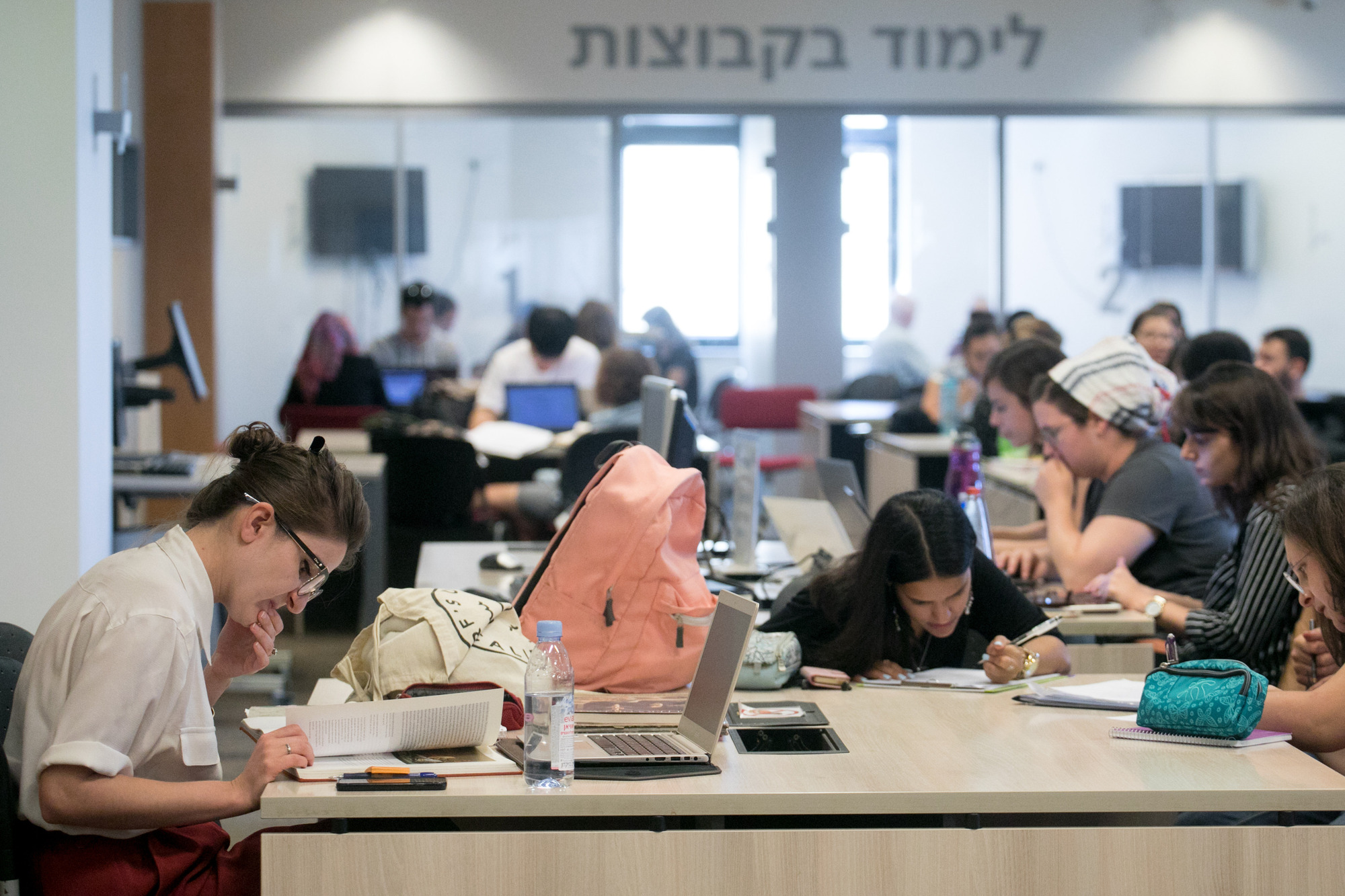Proposed Legislation Expands Permitted Gender Separation in Academia
(Student Rights Law Amendment – Separate Study Tracks), 2024
While it’s important to facilitate the integration of Haredim into academia and the workforce, seperate graduate program for men and women can be harmful to the rights of women and often clashes with the law that prohibits gender-based discrimination in public places.

Photo by Miriam Alster/Flash90
In general, according to the law in Israel, gender separation and the exclusion of women constitute violations of equality and are prohibited. According to The Prohibition of Discrimination in Products, Services, and Entry into Places of Entertainment and Public Places Law, discrimination in providing educational services based on gender is explicitly prohibited. Government resolutions on the matter have also determined that gender separation and the exclusion of women constitute violations of equality and are, therefore, prohibited.
In 2021, to facilitate the integration of the more conservative groups of the ultra-Orthodox community into the labor market, the Supreme Court approved, as an exception, the establishment of separate tracks for men and women in undergraduate programs, under defined conditions. For an example, the ruling was explicitly intended for the ultra-Orthodox community in certain tracks, and only as an "entry point" to higher education. Another condition was that such gender separation was permitted only within classrooms and not in public areas. Additionally, the Court ruled that female lecturers could not be prohibited from teaching male students.
Despite existing legislation and the Supreme Court's ruling, a proposed bill recently passed its preliminary reading in Knesset. It seeks to permit comprehensive gender separation across any educational institution, for any sector of society, meaning separation would no longer be prohibited.
Under this proposal, higher education institutions could establish separate academic tracks for men and women without any conditions or restrictions. They could even open programs exclusively for men or exclusively for women. Such arrangements would cease to be classified as discriminatory and be explicitly defined as part of the institution’s operational freedom.
This proposal stands in direct opposition to the Supreme Court's 2021 ruling, which aimed to preserve a delicate balance between the right to equality, the prevention of harm to women's employment and exclusion from the public sphere, and the necessity of making higher education accessible to the ultra-Orthodox community.
According to the explanatory notes, the proposal is founded on the principles of freedom of religion and conscience, which demand that gender separation be permitted for those whose beliefs require it. Additionally, there is a view that mixed-gender study environments pose a barrier to some groups in the ultra-Orthodox community. Consequently, proponents argue that gender separation in academia would facilitate greater participation of the ultra-Orthodox in higher education, thereby promoting their integration into the workforce.
First, a reality in which women are unable to move freely in public spaces solely due to their gender would constitute a severe violation of their rights to equality, human dignity, and freedom of occupation. Presently, women encountering unlawful separation in academic institutions have grounds for legal action, but this legislation would eliminate such recourse.
Second, the bill enshrines the right to gender separation, contradicting Israeli legal precedents that limit religious restrictions when they infringe upon the rights and freedoms of others.
Third, the proposal is extreme, as it prioritizes the right to gender separation over balancing it with the principles of equality and freedom of occupation. Critics suggest that less invasive measures could address the underlying concerns.
Fourth, the assumption that expanding the scope of gender separation, rather than investing in and improving existing spaces that are inclusive to the ultra-Orthodox, would lead to greater integration remains unsubstantiated. Existing, limited forms of separation have already facilitated significant growth in the participation of the ultra-Orthodox community in higher education. Further progress could be achieved by continuing this approach and implementing additional supportive measures, such as providing guidance and resources to prevent student dropout.
Fifth, legitimizing gender separation through this proposal may expand exclusionary practices, directly affecting women in academia, including female researchers and administrative staff, who would have increased limits placed on their professional activities. Furthermore, it risks extending separation into other public domains, such as the workplace, public transportation, and other communal spaces.
Sixth, the proposal directly opposes the foundational ethos of academia, which champions learning, training, and research rooted in pluralism and diversity. This ethos views academia not only as a research arena but also as a social and humanistic training ground for the professionals and leaders of tomorrow.
In a period where women’s contributions to Israeli society are indispensable (as soldiers and civilians alike), and their representation in government and parliament is diminishing, this bill exacerbates the disproportionate harm to women’s rights, particularly their fundamental rights to equality and human dignity. It also constitutes an additional move in a broader series of initiatives that undermine democracy in Israel.
